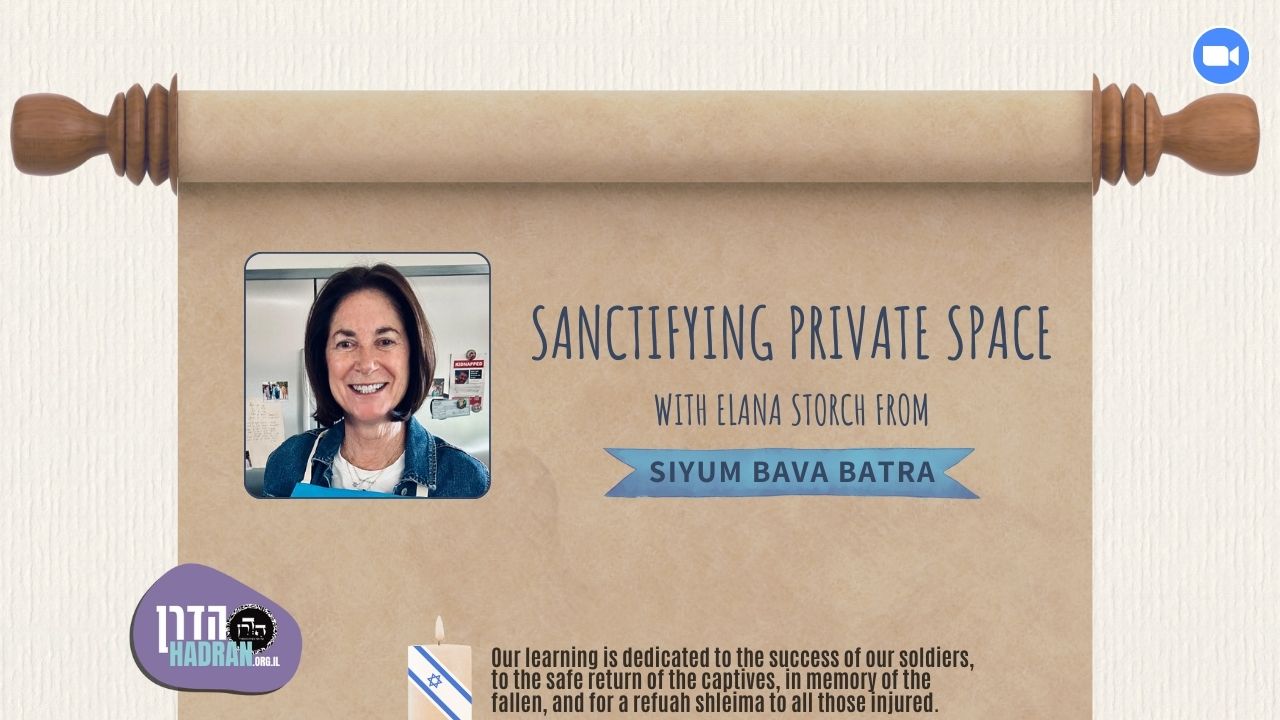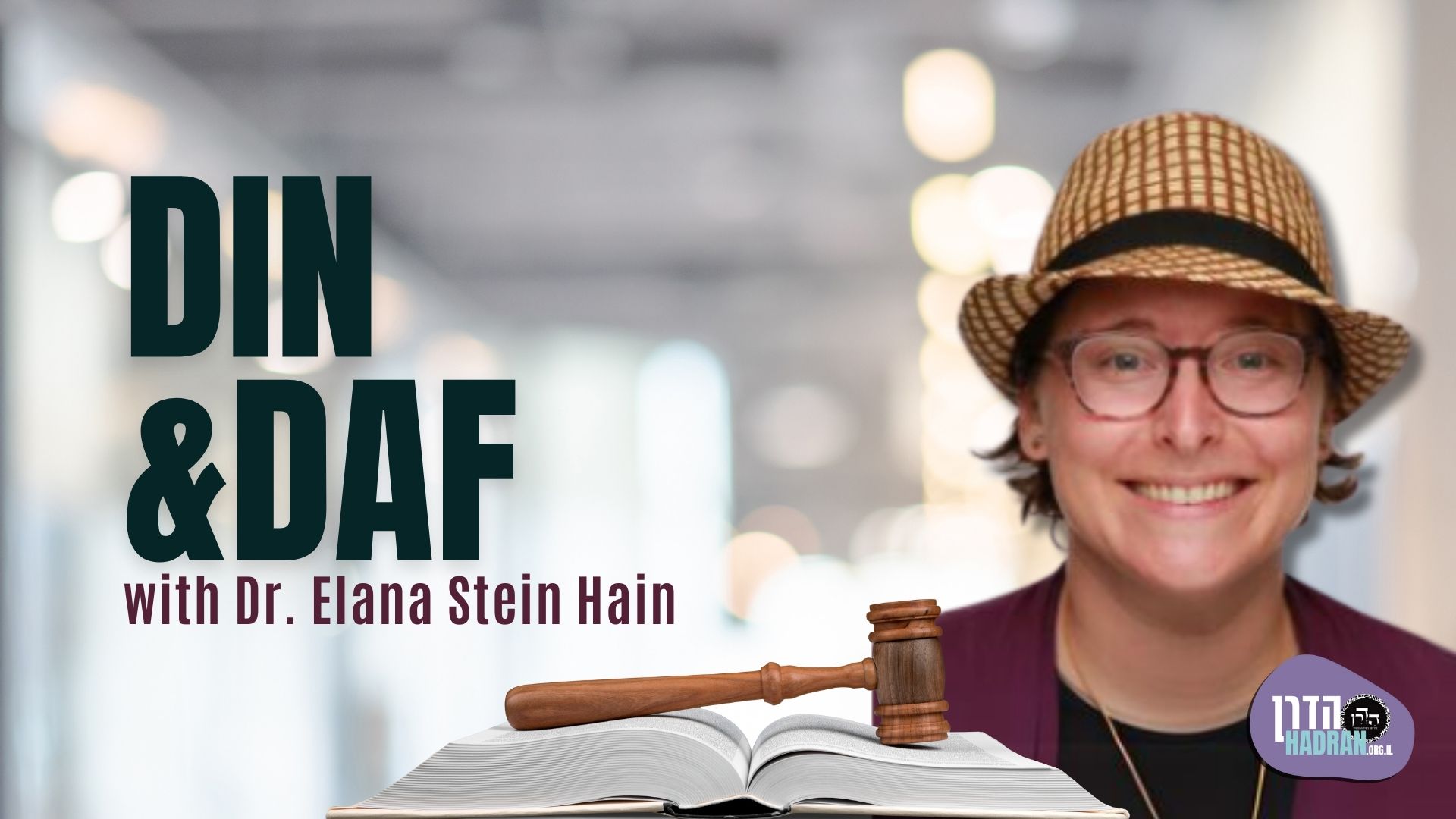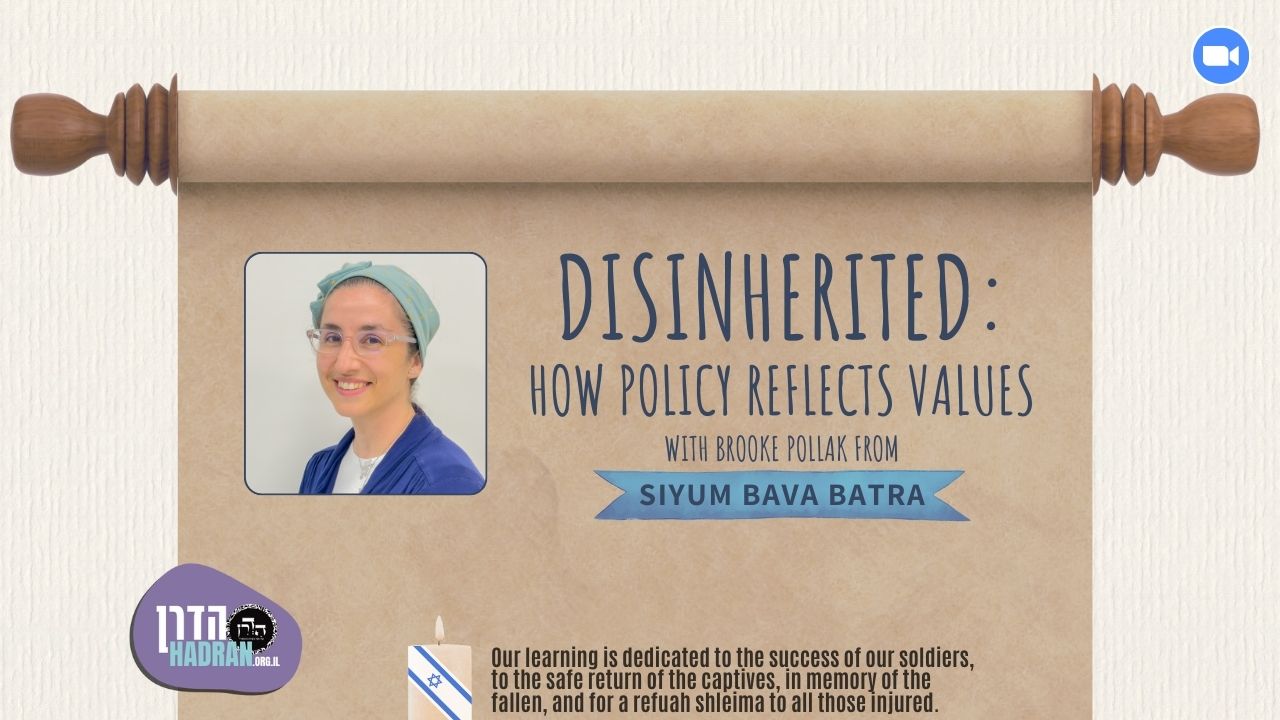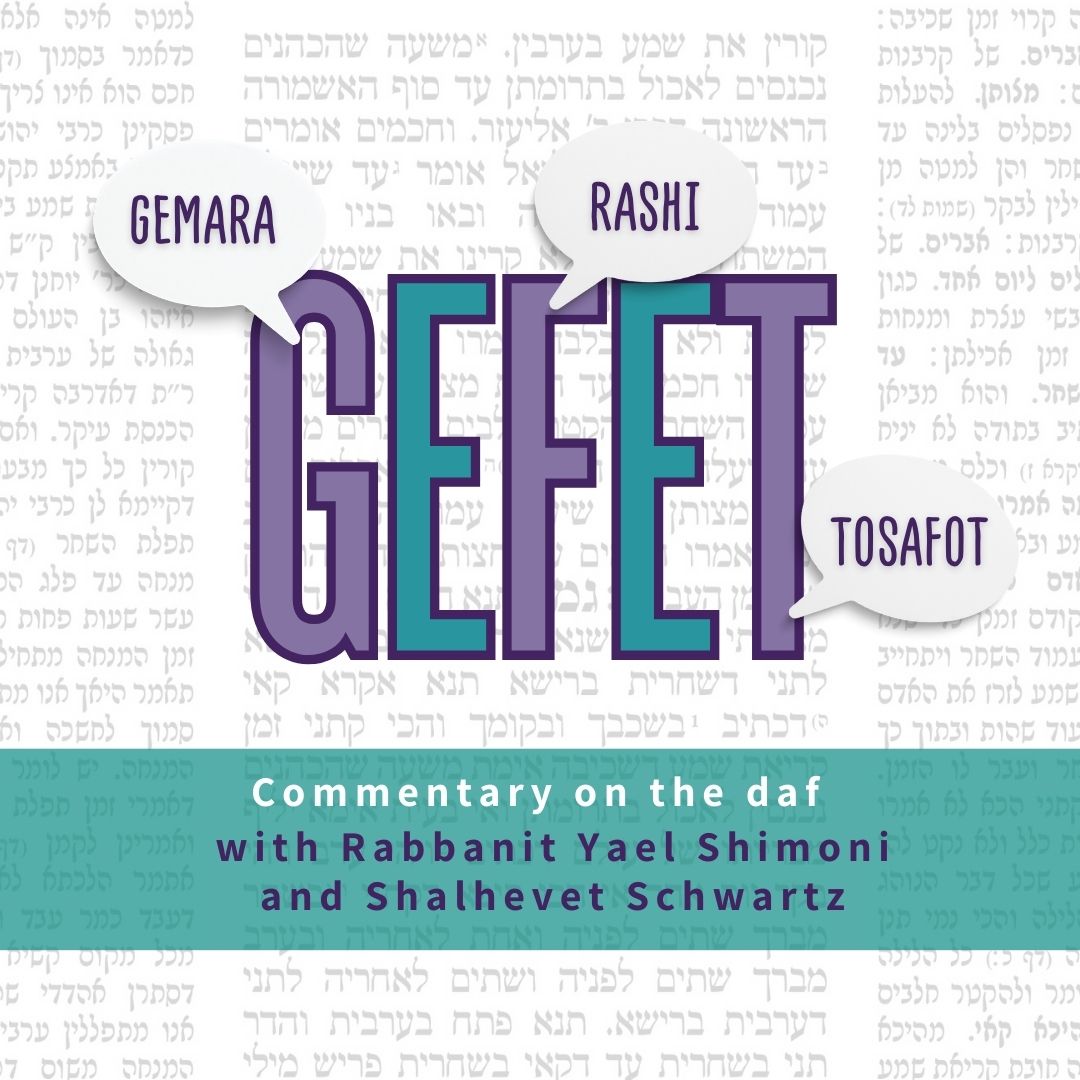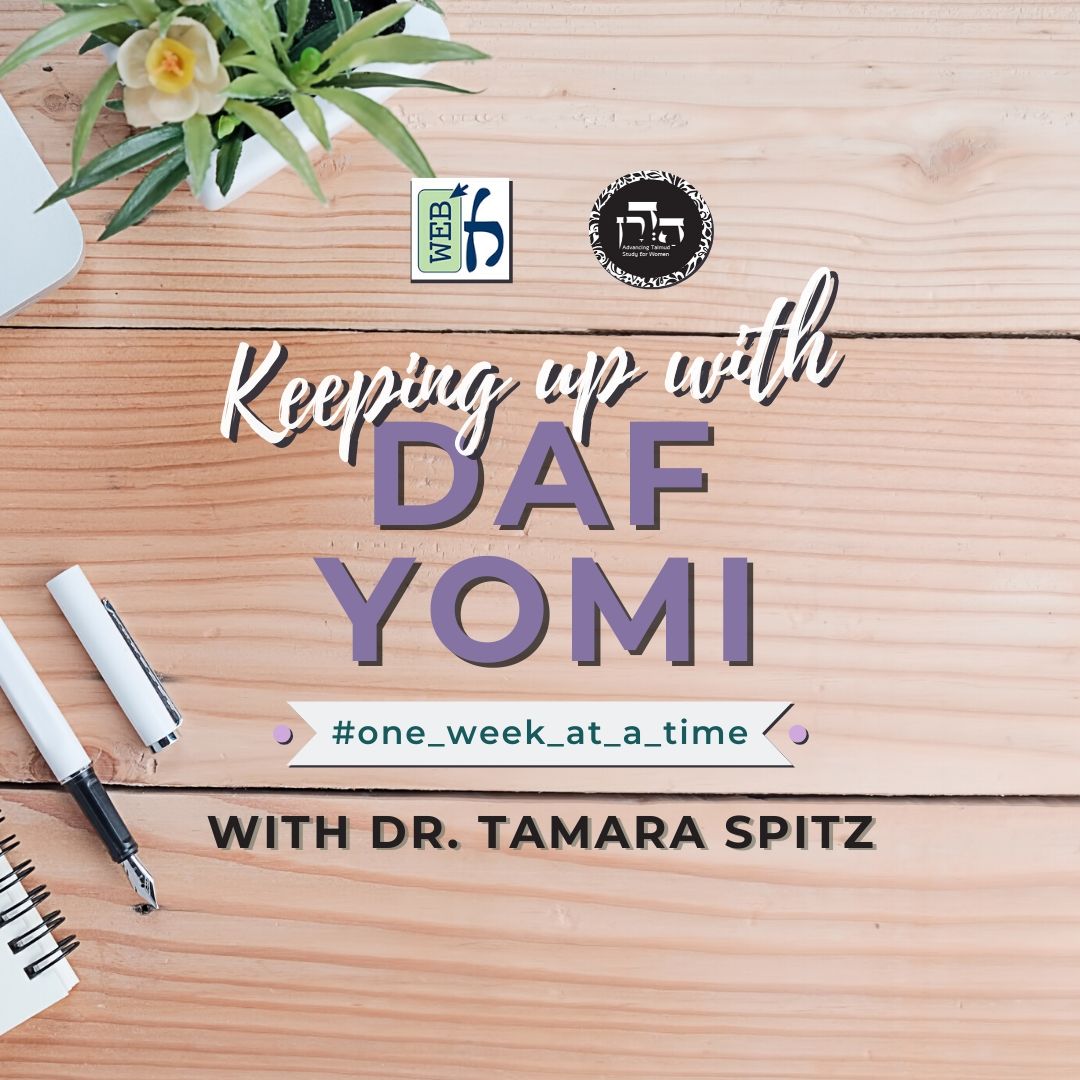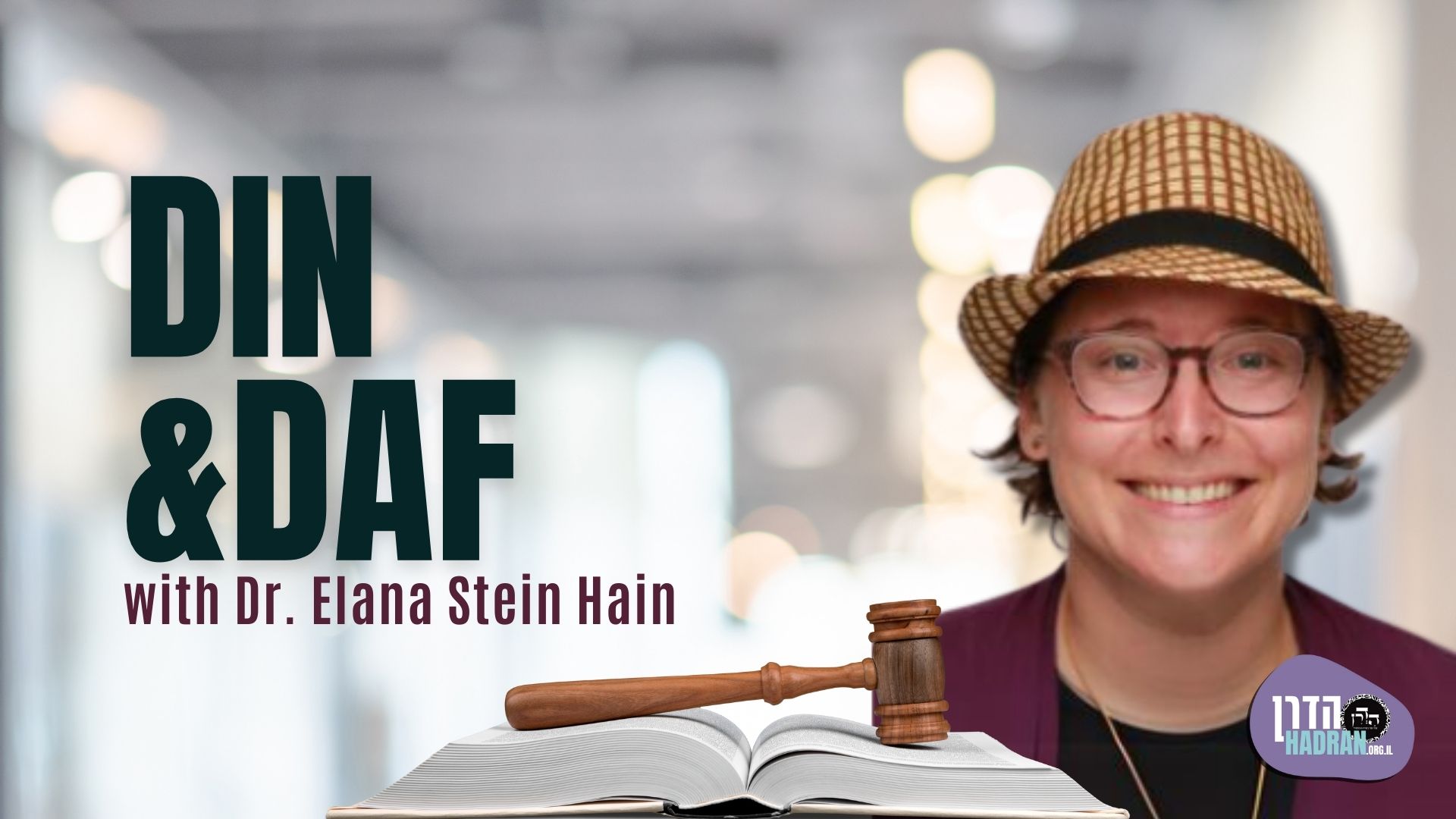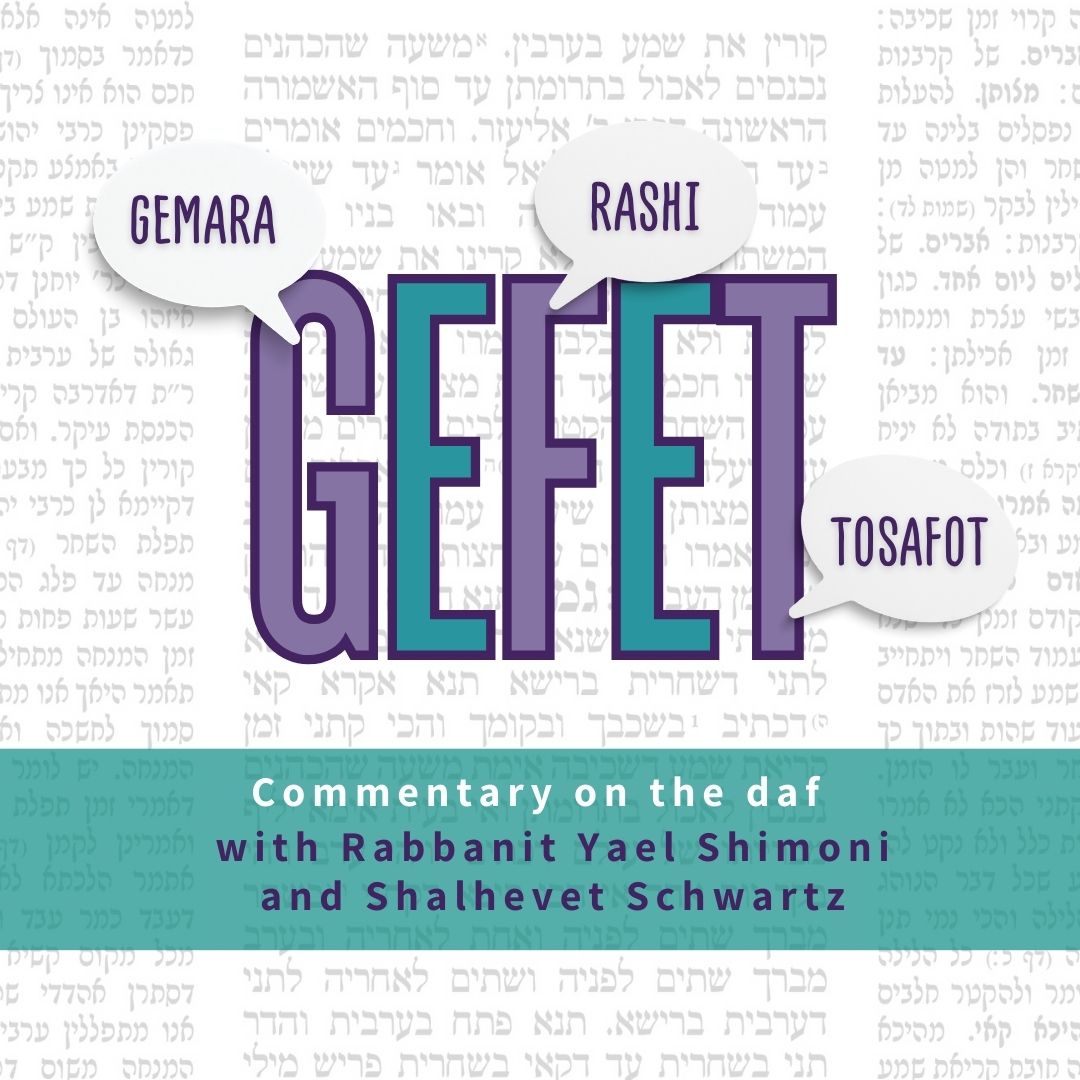Bava Batra 105
בִּטֵּל ״מִדָּה בְּחֶבֶל״ ״הֵן חָסֵר הֵן יָתֵר״; דִּבְרֵי בֶּן נַנָּס.
the words: Measured precisely with a rope, nullify the words: More or less, since the principle is that in all cases, one should attend to the final expression; this is the statement of ben Nanas.
גְּמָ׳ אָמַר רַבִּי אַבָּא בַּר מֶמֶל אָמַר רַב: חוֹלְקִין עָלָיו חֲבֵירָיו עַל בֶּן נַנָּס. מַאי קָא מַשְׁמַע לַן? תְּנֵינָא: מַעֲשֶׂה בְּצִיפּוֹרִי, בְּאֶחָד שֶׁשָּׂכַר מֶרְחָץ מֵחֲבֵירוֹ בִּשְׁנֵים עָשָׂר זְהוּבִים לְשָׁנָה – דִּינַר זָהָב לְחֹדֶשׁ;
GEMARA: Rabbi Abba bar Memel says that Rav says: Ben Nanas’s colleagues disagree with him with regard to his ruling that one should attend to the final expression. The Gemara asks: What new halakha is Rav teaching us? Don’t we already learn that they disagree from a mishna (Bava Metzia 102a): There was once an incident in Tzippori involving one who rented a bathhouse from another, and it was stated that the rental fee would be twelve gold dinars [zehuvim] a year, one gold dinar per month, and the year was later intercalated, an extra month being added.
וּבָא מַעֲשֶׂה לִפְנֵי רַבָּן שִׁמְעוֹן בֶּן גַּמְלִיאֵל וְלִפְנֵי רַבִּי יוֹסֵי, וְאָמְרוּ: יַחְלוֹקוּ אֶת חֹדֶשׁ הָעִיבּוּר!
The incident came before Rabban Shimon ben Gamliel and before Rabbi Yosei for a decision as to whether the intercalated month is included in the words: Twelve gold dinars a year, or whether an additional payment must be made for that month, as the agreement stipulated: One gold dinar per month. And they said: The landlord and the tenant should divide the intercalated month between them, and so the tenant should pay only half a gold dinar for it. This indicates that these Sages ruled that the meaning of an agreement containing two contradictory expressions is in doubt, and therefore the parties divide the disputed amount between them. From here it follows that they disagree with the opinion of ben Nanas, who says that in such a case one should attend to the final expression.
אִי מֵהָתָם, הֲוָה אָמֵינָא: הָתָם הוּא דְּאִיכָּא לְמֵימַר מִיהְדָּר קָא הָדַר בֵּיהּ, וְאִיכָּא לְמֵימַר פָּרוֹשֵׁי קָא מְפָרֵשׁ. אֲבָל הָכָא, דְּוַדַּאי קָא הָדַר בֵּיהּ, אֵימָא לָא; קָא מַשְׁמַע לַן.
The Gemara replies: If the Sages’ opinion was derived only from there, I would not know that they disagree with the opinion of ben Nanas in all cases, as I would say that it is only there that the Sages say that the parties divide the disputed sum between them. As it is possible to say that the landlord retracted his first statement and set the rental fee at one gold dinar per month, but it is also possible to say that he is explaining his earlier statement. That is to say, he did not mean to relate to the intercalated month; rather, he was clarifying that payment was to be made not with a lump sum at the end of the year, but in monthly installments. Since there is uncertainty with regard to his intention, the parties divide the contested sum between them. But here in the mishna, where the seller certainly retracted his first statement, one might say that the Sages do not disagree with ben Nanas. Therefore, the mishna teaches us that in all cases the Sages disagree with ben Nanas.
אָמַר רַב יְהוּדָה אָמַר שְׁמוּאֵל: זוֹ דִּבְרֵי בֶּן נַנָּס, אֲבָל חֲכָמִים אוֹמְרִים: הַלֵּךְ אַחַר פָּחוֹת שֶׁבַּלְּשׁוֹנוֹת.
Similar to what was cited above in the name of Rav, Rav Yehuda says that Shmuel says: This is the statement of ben Nanas, who says with regard to a case of contradictory expressions that one should attend to the final expression; but the Sages say: Follow the least inclusive expression, the one that is the least advantageous to the buyer, in keeping with the principle that in a case of uncertainty, the burden of proof rests upon the claimant.
״זוֹ״ – וְלָא סְבִירָא לֵיהּ?! וְהָא רַב וּשְׁמוּאֵל דְּאָמְרִי תַּרְוַיְיהוּ: ״כּוֹר בִּשְׁלֹשִׁים אֲנִי מוֹכֵר לָךְ״ – יָכוֹל לַחֲזוֹר בּוֹ אֲפִילּוּ בַּסְּאָה הָאַחֲרוֹנָה.
The Gemara asks: Did Shmuel mean to say that this is the statement of ben Nanas, but he, Shmuel, does not agree with him? But don’t Rav and Shmuel both say: If the seller said to the buyer: I am selling you a kor of grain, an amount equivalent to thirty se’a, for the sum of thirty sela, he can renege on the entire sale even while measuring out the last se’a. Since the seller stipulated that he was selling a full kor of grain, as long as he has not yet measured out the full amount, he may still renege, as the sale is not yet complete.
״כּוֹר בִּשְׁלֹשִׁים – סְאָה בְּסֶלַע אֲנִי מוֹכֵר לָךְ״ – רִאשׁוֹן רִאשׁוֹן קָנָה. אֶלָּא ״זוֹ״ – וּסְבִירָא לֵיהּ.
But if the seller said to the buyer: I am selling you a kor of grain for thirty sela, each se’a for a sela, the buyer acquires each se’a one by one as it is being measured out to him. Since the seller specified the price per sela, he has indicated that he is ready to sell each sela on its own. This seems to indicate that Shmuel maintains that in a case of contradictory expressions, one should attend to the final expression. Rather, Shmuel’s formulation: This is the statement of ben Nanas, must be explained as follows: This is the statement of ben Nanas, and he, Shmuel, agrees with him that one should attend to the final expression.
וּמִי סְבִירָא לֵיהּ?! וְהָאָמַר שְׁמוּאֵל: בְּבָא בָּאֶמְצַע הַחֹדֶשׁ עָסְקִינַן; אֲבָל בָּא בִּתְחִלַּת הַחֹדֶשׁ – כּוּלּוֹ לַמַּשְׂכִּיר. בְּסוֹף הַחֹדֶשׁ – כּוּלּוֹ לַשּׂוֹכֵר!
The Gemara asks: And does Shmuel actually agree with him? But doesn’t Shmuel say: Concerning the ruling of the Sages that the landlord and the tenant should divide the intercalated month between them, we are dealing with a case where the landlord came to collect the rent in the middle of the month. Only in that case is the disputed rent divided between them. But in a case where he came to collect the rent at the beginning of the month, the entire sum goes to the landlord who is demanding payment, since he is in possession of the property. And if he came at the end of the month, the entire sum goes to the tenant who is refusing payment, since he is in possession of the money. This indicates that Shmuel maintains that in a case of contradictory expressions, one should not attend to the latter expression. Rather, the case is viewed as one of uncertainty, and the burden of proof rests upon the claimant.
אֶלָּא לְעוֹלָם ״זוֹ״ – וְלָא סְבִירָא לֵיהּ. וְהָתָם טַעְמָא מַאי – מִשּׁוּם דְּתָפֵיס,
Rather, it must be that Shmuel actually meant to say that this is the statement of ben Nanas, but he, Shmuel, does not agree with him that one should attend to the latter expression. In fact, he is in agreement with the Sages who maintain that two contradictory expressions create a case of uncertainty. And there, in the case of the rent for the intercalated month, what is the reason for his ruling that if the landlord came to collect the rent at the beginning of the month, the entire sum goes to the landlord, whereas if he came at the end of the month, the money goes to the tenant? Because the party who is awarded the money was seen as already being in possession of it, and in a case of uncertainty, money is left in the hands of the party enjoying possession.
הָכָא נָמֵי – הָא תָּפֵיס.
Here too, in the case where the seller says that he is selling a kor of grain for thirty sela, each se’a for a sela, the buyer was seen as already being in possession of each se’a that was measured out to him, and therefore the seller cannot renege on the sale. It is for this reason that the buyer acquires the grain, and not because of the principle that in a case of contradictory expressions, one should attend to the latter expression.
אָמַר רַב הוּנָא, אָמְרִי בֵּי רַב: ״אִיסְתֵּרָא, מְאָה מָעֵי״ – מְאָה מָעֵי. ״מְאָה מָעֵי, אִיסְתֵּרָא״ – אִיסְתֵּרָא.
On a similar topic, Rav Huna says that they say in the school of Rav: If the seller said to the buyer: I am selling you this item for an istera, one hundred ma’a, an istera being a silver coin equal to ninety-six copper ma’a, it is assumed he meant one hundred ma’a. And if the seller reversed the order and said that he was selling the item for one hundred ma’a, an istera, it is assumed he meant an istera.
מַאי קָא מַשְׁמַע לַן – תְּפוֹס לָשׁוֹן אַחֲרוֹן? הָא אַמְרַהּ רַב חֲדָא זִימְנָא – דְּאָמַר רַב: אִי הֲוַאי הָתָם, הֲוָה יָהֵיבְנָא כּוּלֵּיהּ לְמַשְׂכִּיר!
The Gemara asks: What new halakha is Rav teaching us? Is it that with regard to a statement comprised of contradictory expressions one should attend only to the last statement? Didn’t Rav already say this on another occasion? As Rav says: Had I been there as a judge when the ruling was issued with regard to the rental fee for the intercalated month, I would have given the entire month’s rent to the landlord, based on the final expression in the rental agreement: One gold dinar per month.
אִי אִיתְּמַר הָא וְלָא אִיתְּמַר הָא, הֲוָה אָמֵינָא: מִיהְדָּר קָא הָדַר בֵּיהּ. אֲבָל הָכָא, מַהוּ דְּתֵימָא פָּרוֹשֵׁי קָא מְפָרֵשׁ; קָא מַשְׁמַע לַן.
The Gemara answers: Nevertheless, it was necessary to state both rulings, as the one cannot necessarily be inferred from the other. If this halakha with regard to the istera was stated and that halakha with regard to the intercalated month was not stated, I would say that when the seller uttered the second expression: One hundred ma’a, he retracted his first expression: An istera, as the two expressions contradict one another, and for that reason Rav said that one should attend to the final expression. But here, in the case of the intercalated month, perhaps you would say that when the landlord utters the second expression: One gold dinar per month, he is explaining the original intent of his first expression: Twelve gold dinars a year, and one should view it as a clarification. Therefore Rav comes and teaches us that in all cases one should attend to the final expression.






